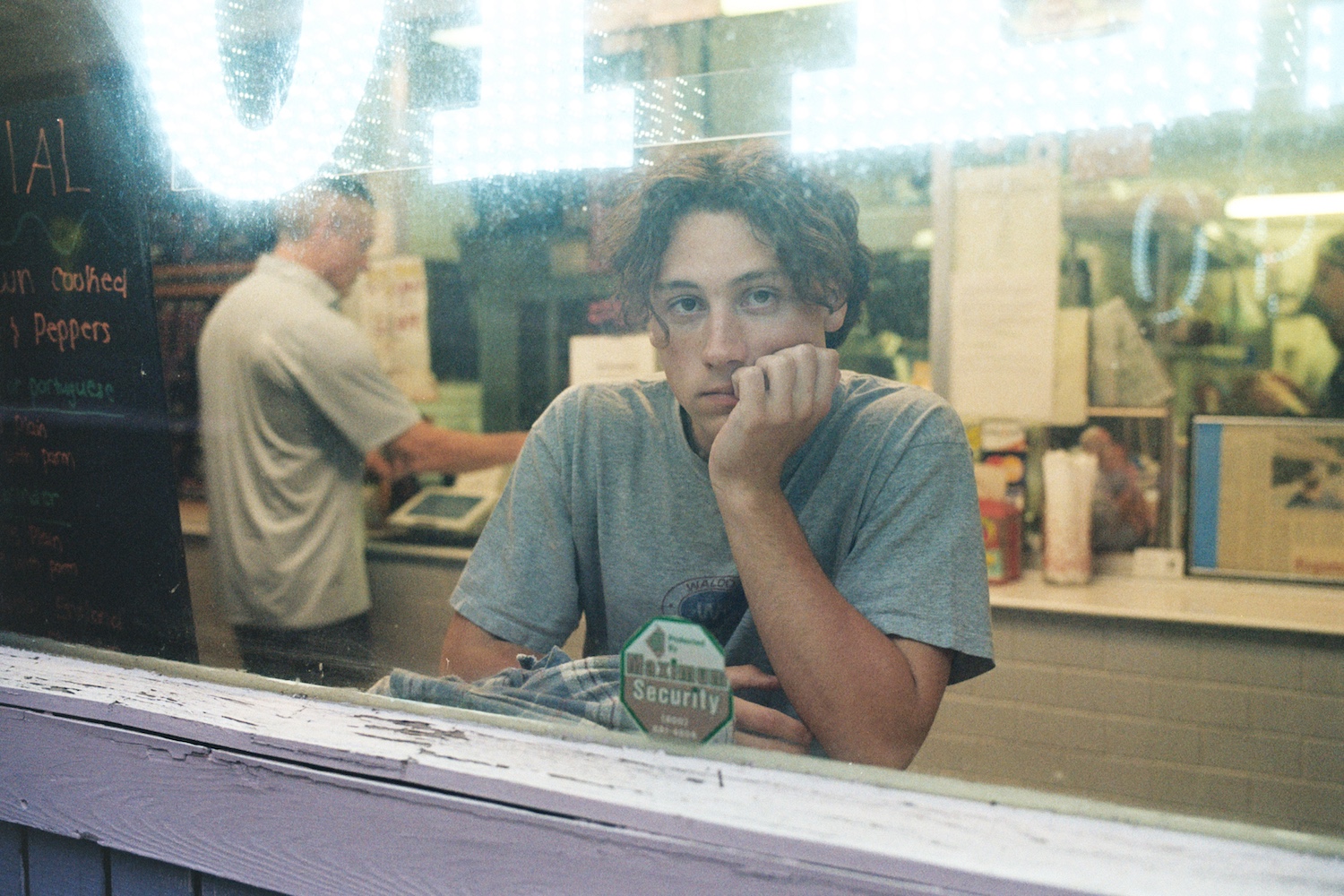Album Review

August 21, 2025

Taken by Adalli Schell
Jake Minch’s debut album George, produced by Tony Berg and released by Mercury Records in July 2025, was written in the afterglow of his 2023 breakout EP how many and its viral singles “handgun” and “i’d pick up flowers.” Now 22, Minch looks back on the dishevelment of his late teens and early twenties, turning it into a twelve-part story about growth, mistakes, and the kind of change you only recognize once it’s already happened.
Throughout the album, Minch moves between blunt self-reproach and fleeting moments of tenderness. Opener “Nostalgia Act” drops us into a pivotal time: he’s signed to a record label, met some of his idols, yet he’s still nursing heartbreak over an unrequited hometown crush. It’s the first glimpse of one of the album’s central motifs, the way big milestones can sit alongside small, private disappointments; how external change doesn’t always match what’s happening inside. That tension surfaces again in “Drawing a Tattoo,” where he remembers feeling and looking much older at the end of high school, only to realize in hindsight that no one had any idea of what was coming.
Right before college, your dad’s out of town,
You fit a lightbulb inside of your mouth,
You were talking so big, and you were mumbling so proud
Now the joke’s that you can’t get it out.
Rather than wallow, Minch turns his interrogation inward. Tracks like “Fucked Up” wrestle with accountability, admitting to being selfish or careless, but also tracing those flaws back to fear and immaturity. In “Fucked Up,” Minch tells the story of being a bad boyfriend and being lectured by his ex-girlfriend but only truly understanding how much damage he did when he saw someone else he loved being treated poorly by their partner, “its like the quote ‘karma doesn’t punch you back; it goes after the people you love and makes you watch’” he said on TikTok. In contrast, “Unicef” sees Minch wrestling with his own youth, ultimately reaching the conclusion that although he has to take accountability for his mistakes, he also has to give his younger self some grace.
Predetermined weakness
You didn't know was there
You weren't mean on purpose
You were scared
You said it like you meant it
Maybe you did
But you weren't tryin' to hurt 'em
No, you were a kid
No, you were a kid
The repeated return to childhood, whether it’s seeing friends become parents in “Drawing a Tattoo” or dreaming of rescuing his sister in “Changed Things,” suggests a deep unease with the gap between who he thought he’d be and who he is now. In “First I was” he explores this further, by doubling down on lessons learned in “Unicef” and realizing that before he was an angry teenager, he was ‘an artist,’ ‘against all that,’ ‘and gonna be great.’ Leaving listeners wondering if he still believes he can come out the other side of the tumultuous years and return to that childlike version of himself.
He starts answering the question in the emotional center of the record: “Dad’s Song,” a raw letter to his late father that doubles as a mirror. Here, grief intertwines with the fear of inheriting the same sadness and the same self-destructive coping mechanisms. By acknowledging that some of his worst instincts feel ingrained, Minch reframes the album’s narrative: George isn’t about fixing everything, but about recognizing the damage before it becomes permanent. In addition, the track sees Minch at his most vulnerable, with real concerns about parallelisms with his dad, even to the point of questioning if being a musician is the right choice.
And I started singing, and people are listening
You wrote your poetry, I think we'd both agree
I've been hiding in the one place I shouldn't be
The only moment in the album that is not filled with questioning is the distinct-sounding “Say Uncle,” where, with electric guitars and a steady percussion, Minch shines light on a moment he is proud of, being a good friend amidst the chaos, and being there when he was needed most.
You can slow down baby, I'm not leaving til I hear it
Come on, come on
Say uncle, say uncle, say uncle, say uncle
Aside from that, even the love songs on the record, including “Fingers and Clothes” and “For Leaving”, are less about romance and more about self-knowledge. Desire is tangled with guilt, knowing that wanting to be better doesn’t guarantee you’ll get there. And yet, the album ends not in despair, but in quiet acceptance. In “Twice” Minch recognizes that love, however flawed, was real, and that trying is an accomplishment in and of itself.
World was a clogged straw
And you and me were sucking from both ends, no
I was never gonna love you right
But I'd love you more than I ever had yet
So if you're drinking, I'm drinking
If you're drinking, I'm drinking
In George, Jake Minch doesn’t pretend to have the answers. Instead, he offers something rarer in a debut: a willingness to sit in the middle of the mess, to track the jagged line between youth and adulthood, and to leave us with his own uncertainty of what comes next.
If you enjoyed this article, sign up to our newsletter and follow us on Instagram and LinkedIn to stay up to date with Gen Admission. 🎶